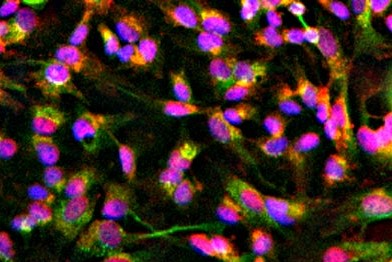3-beta-HSD is a bifunctional enzyme, that catalyzes the oxidative conversion of Delta(5)-ene-3-beta-hydroxy steroid, and the oxidative conversion of ketosteroids. The 3-beta-HSD enzymatic system plays a crucial role in the biosynthesis of all classes of hormonal steroids.
Expressed in adrenal gland, testis and ovary.
Defects in HSD3B2 are the cause of adrenal hyperplasia type 2 (AH2) [MIM:201810]. AH2 is a form of congenital adrenal hyperplasia, a common recessive disease due to defective synthesis of cortisol. Congenital adrenal hyperplasia is characterized by androgen excess leading to ambiguous genitalia in affected females, rapid somatic growth during childhood in both sexes with premature closure of the epiphyses and short adult stature. Four clinical types: 'salt wasting' (SW, the most severe type), 'simple virilizing' (SV, less severely affected patients), with normal aldosterone biosynthesis, 'non-classic form' or late onset (NC or LOAH), and 'cryptic' (asymptomatic). In AH2, virilization is much less marked or does not occur. AH2 is frequently lethal in early life.

